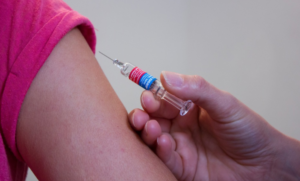Three Most Common Myths About Vaccination
The movement of anti-vaccination is more robust and bigger than ever. If you read an article at https://www.medscape.com/viewarticle/753716_2, you will understand that vaccination does work successfully worldwide. As we witness a resurgence of previously considered diseases under control and almost eradicated, an increasing number of people are opposed to the application. This issue is of great interest to both parents and those without children. If you have ever been involved in this debate, you have probably noticed several topics.

The Decision Not to Vaccinate Doesn’t Affect Anyone Else
Unfortunately, vaccines are not infallible. Although only 1% of the vaccinated population does not develop resistance to a disease, it is significant. If I had a group of 100,000 children and had a perfect vaccination rate of 95%, there would still be 950 vaccinated children at risk of infection. With a 95% vaccination rate, epidemics are unlikely. But vaccination rates have decreased in many developed countries and are now less than 90%. With the increase in the number of unvaccinated children and several epidemics worldwide, the risk of infection for the small percentage of vaccinated children who do not have immunity is much higher.
 And even these children depend on healthy enough to receive vaccines to keep infectious diseases at bay because they cannot get immediate protection. It may seem that the decision not to vaccinate a healthy child does not matter much, but if more and more parents make the same decision, the consequences become a threat to public health.
And even these children depend on healthy enough to receive vaccines to keep infectious diseases at bay because they cannot get immediate protection. It may seem that the decision not to vaccinate a healthy child does not matter much, but if more and more parents make the same decision, the consequences become a threat to public health.
Vaccines Cause Autism
Of course, one of the first things you learn when doing any study is that the correlation is not equal to causality. Scientific articles and reviews regarding vaccines and autism explain no correlation was found in any of them. But since the 48 initial effects that were deemed “best applicable” to vaccines and autism contain no evidence of a causal relationship, there is likely no research in the middle of these articles that provides any revelation to the contrary.
Herd Immunity Is Not Real
 This statement seems to gain popularity, and it isn’t easy to find concrete scientific evidence to support it. A quick search for the “herd immunity myth” provides a wide range of results, but all come from anti-vaccination sites. So, any honest and impartial scientific journal articulates the idea that the flock’s immunity, concerning vaccines, is a chimera? A quick but none of these 193 articles suggests that herd immunity is a fantasy.
This statement seems to gain popularity, and it isn’t easy to find concrete scientific evidence to support it. A quick search for the “herd immunity myth” provides a wide range of results, but all come from anti-vaccination sites. So, any honest and impartial scientific journal articulates the idea that the flock’s immunity, concerning vaccines, is a chimera? A quick but none of these 193 articles suggests that herd immunity is a fantasy.
If you crawl the results of Google, it turns out that there are many discussions and no recourse. You will find some interesting articles on why some vaccines may not contribute to the flock’s resistance as initially thought, but that does not mean that the immunity of the flock is a fantasy. You will find boosters and multiple doses of vaccines that have been shown to have reduced immunity to ensure the persistence of herd immunity.

